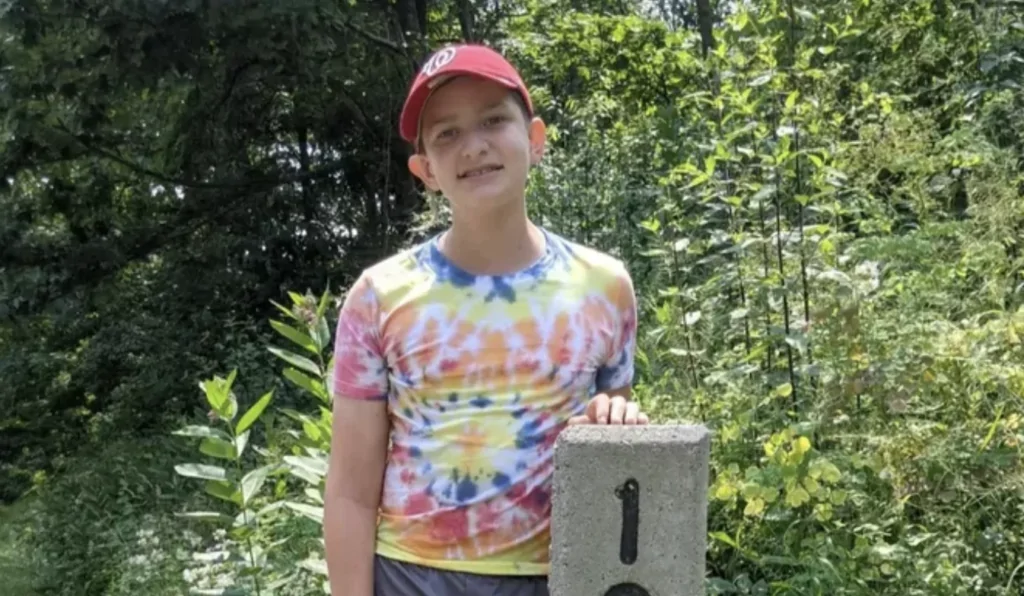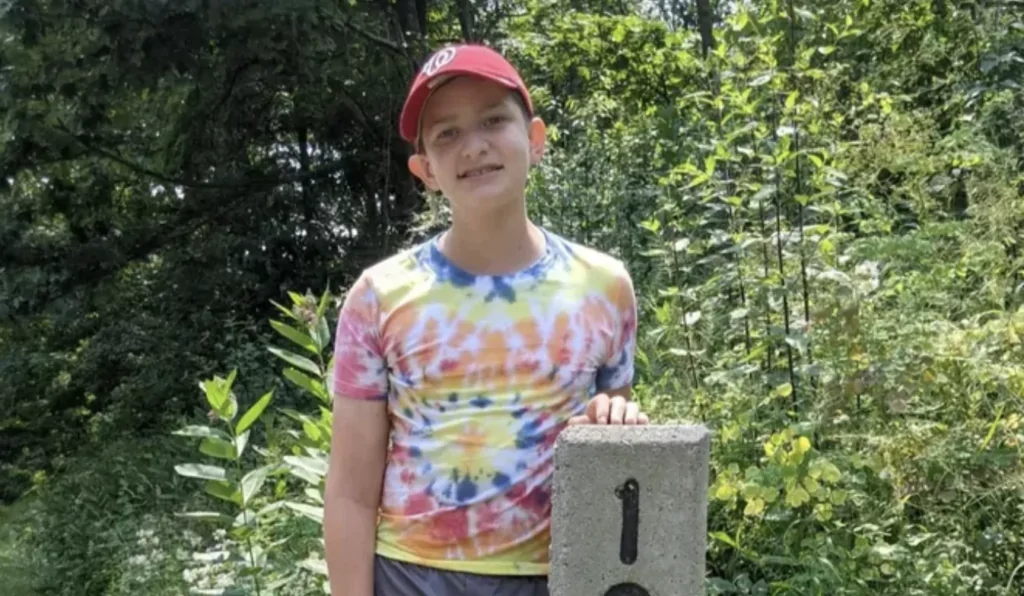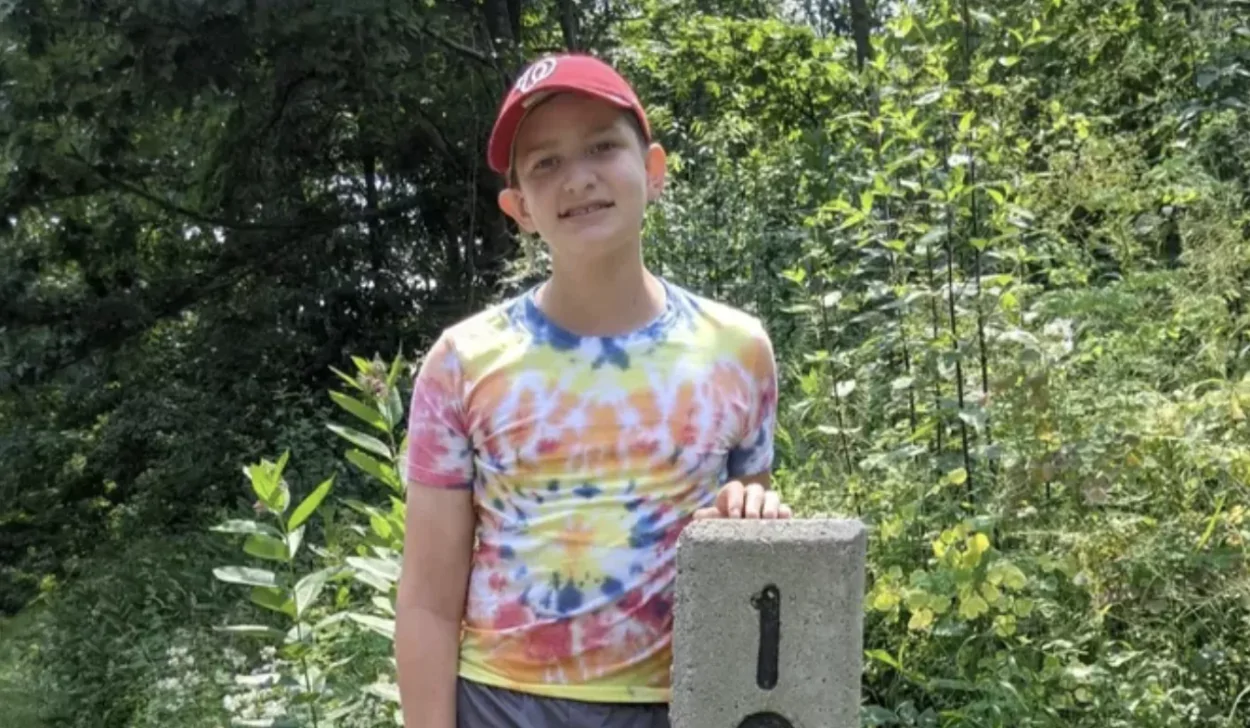
In July 2022, a 14-year-old boy was infected with a brain-eating amoeba in Port Charlotte Beach, Florida, but he is alive today.
After fighting the amoeba, which has a 97 percent fatality rate, for a year, Caleb Ziegelbaur can now stand, laugh, and communicate through facial expressions and some speech, but he acknowledged there is still a journey ahead of him.
In an interview with NBC2 on Wednesday, Caleb said to his mother Jesse Ziegelbaur, “I have come so far, and yet I have a lot of progress.”.
Additionally, the teenager said that he can now “talk with my eyebrow,” to which his mother responded, “He went five months without any talking so we had to — his face didn’t move for a very long time so as it woke up he would talk with those eyebrows. “.
Jesse and her son talked about how it had been a year since he first fell ill with the fatal infection as they prepared for the interview. “We had no idea it was taking place at this point last year. I had no idea how our lives would develop, she admitted.
The infection struck Caleb last July when he was 13 years old, and one week later, as previously reported by PEOPLE, he began to have fever, headaches, and hallucinations. His family took him to the hospital’s emergency room, where medical professionals found that he had contracted the infection Naegleria fowleri.
Jesse remembered to NBC2 this week, “It was an hour drive and he deteriorated rapidly. “The neurologist entered and gave us four days, saying, “You have four days with your son. ‘”.
One year later, the teenager is even able to see the humor in the ordeal and his survival. Jesse remarked, “He saw that doctor last week and he said I just want to tell you this is the longest four days of my life,” adding that Caleb’s physician was relieved to have been mistaken.

At Golisano Children’s Hospital in Florida, Caleb initially battled the infection for eight months. After that, he underwent intensive rehabilitation for a while beginning in March. Although he is now at home, his aunt Katie Chiet claimed that the family had been through a trying time last year.
We don’t know where we are on any kind of timeline, so walking this path is very isolating and lonely, he told NBC in July. We have a long road ahead of us, but we’re hoping against hope that Caleb becomes survivor 6,” she added.
Last year, Chiet started a GoFundMe page to help with medical costs. Since then, she has informed donors about Caleb’s progress, including in March when she announced that “Caleb is coming home for good.”. “.
Jesse shared her hopes for her son’s recovery in September of last year. According to ABC News, she said, “He is made of pure grit and determination, and it is exactly that which we are banking on to wake him up. “I am eager to hear his story. It is his and his alone to share. “.
Primary amebic meningoencephalitis (PAM), a fatal brain infection caused by the single-celled organism Naegleria fowleri, also known as the brain-eating amoeba, is a rare condition. Only five of the 154 people who contracted the infection in the U.S., according to a CDC report, were U.S. S. from 1962 to the present time have existed.
The warm freshwater environments of lakes, rivers, and hot springs are where brain-eating amoeba are most frequently discovered. Additionally, it can be found living in pools that are not properly maintained or are only lightly chlorinated, where it feeds on bacteria.
According to the CDC, symptoms of a nasal exposure to a brain-eating amoeba typically start one to nine days later and frequently result in death within 18 days. Severe headaches, fever, nausea, and vomiting are among the early warning signs. The second stage includes a stiff neck, seizures, altered mental status, hallucinations, and coma. The diagnosis is typically made following a death.
Avoiding water-related activities in warm freshwater is the only way to prevent infections with brain-eating amoeba. The Florida Department of Health in Orange County spokeswoman Mirna Chamorro previously advised PEOPLE that anyone who enjoys spending time in water should cover their nose before entering or use nose clips. “As long as their heads are not submerged, they are fine. “.
Naegleria fowleri, according to Jesse, is “100% preventable,” and the family now promotes the use of nose plugs while swimming. Caleb has a long road to recovery, but he’s optimistic about the future.
He said to NBC2 this week, “I was going to find the cure for Covid, but now I am going to find the vaccine for Naegleria fowleri.”.


